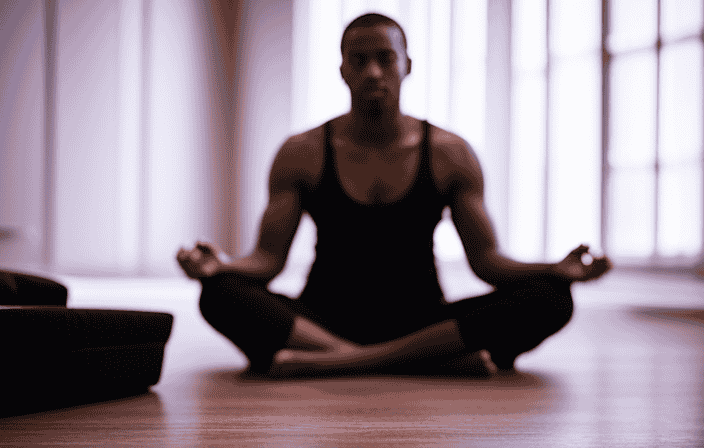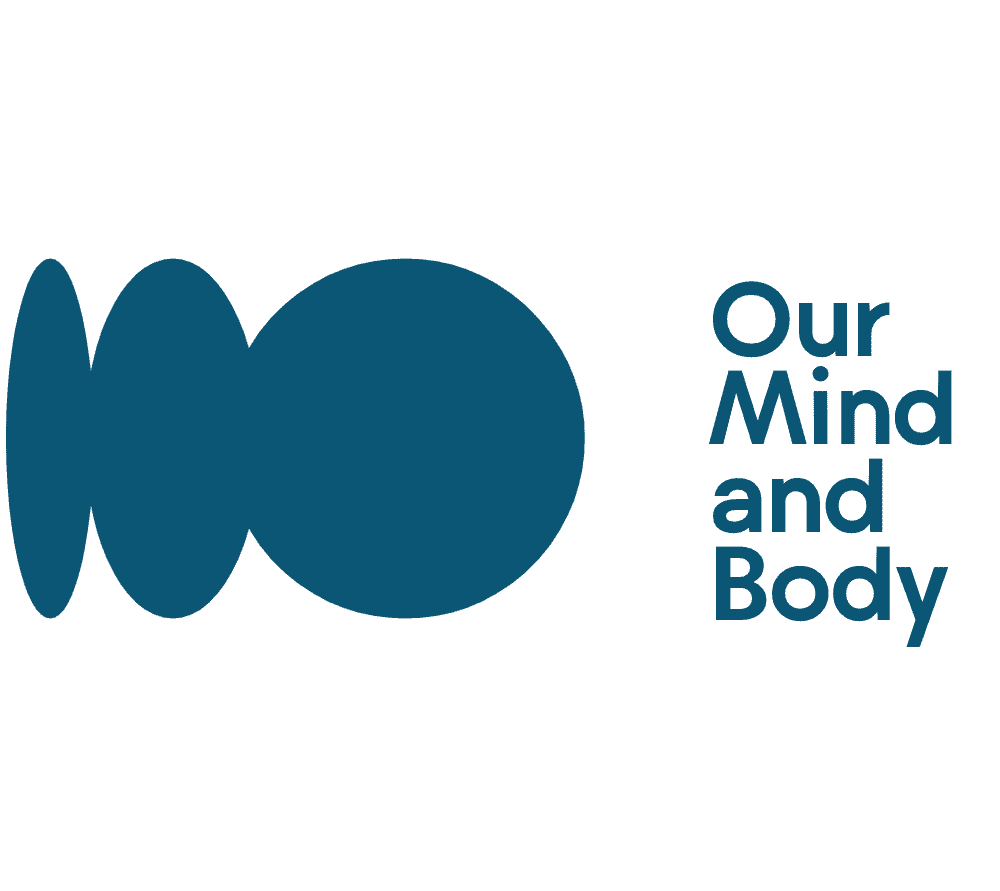Meditation
Meditating With Music: The Ultimate Guide

Imagine a gentle melody wrapping around you like a warm embrace, guiding you into a state of tranquility and deep inner peace. Meditating with music has the power to transport us to a realm of relaxation and mindfulness, where stress fades away and clarity of thought emerges.
In this ultimate guide, we will explore the benefits of meditating with music, how to choose the right tracks, where to find them, and tips for deepening your practice.
Get ready to embark on a journey of serenity and self-discovery.
Key Takeaways
- Meditating with music is a powerful tool for relaxation, mindfulness, and peace.
- Experiment with different types of music to find what resonates best with you.
- Patience and practice lead to deeper meditation sessions.
- Use headphones for an immersive experience and create a playlist of calming music.
Benefits of Meditating
Meditating with music has numerous benefits. It can help increase relaxation, improve focus and concentration, reduce stress and anxiety, and enhance clarity of thought and creativity.
Using music as a tool for relaxation and mindfulness is powerful. It allows us to find peace and tranquility amidst the chaos of daily life. When we meditate with music, we can easily enter a state of deep relaxation. This helps our minds and bodies let go of tension and stress.
Meditating with music also supports our ability to focus and concentrate. It helps us stay present and attentive. By reducing stress and anxiety, we create space for clarity of thought and creativity to flourish.
Whether it’s classical, ambient, or nature sounds, finding the right music for your meditation practice can enhance your overall well-being. It can bring you closer to inner peace.
Choosing the Right Music
When selecting the perfect music for my meditation practice, I experiment with different styles such as classical, ambient, nature sounds, chanting, and singing bowls. Each style offers a unique experience and can enhance different aspects of my meditation.
Classical music helps me find a sense of calm and focus, with its soothing melodies and harmonies.
Ambient music creates a peaceful and serene atmosphere, allowing me to deepen my relaxation and mindfulness.
Nature sounds, like flowing water or birdsong, connect me with the natural world and bring a sense of tranquility.
Chanting and singing bowls create a meditative and spiritual ambiance, helping me connect with my inner self.
By exploring these different styles, I can find the music that resonates best with me and supports my meditation practice. I prioritize relaxation and resonance, allowing the music to guide me into a deeper state of meditation.
Finding and Accessing Music
To find and access the music I need for meditation, I explore various websites and apps that offer a wide selection of calming instrumental tracks. These platforms provide a convenient way to discover different styles of music, from classical to ambient, nature sounds to chanting, and even singing bowls.
I prioritize relaxation and resonance when selecting music for my practice. Taking the time to find the best music that helps me relax and focus is essential.
Additionally, I also check my local library or music store for calming instrumental CDs, as they may offer a physical copy that I can borrow or purchase. By exploring these resources, I can create a playlist of calming music that enhances my meditation experience.
Tips for Deepening Meditation
Starting with shorter songs or pieces and gradually increasing the length of my meditation sessions has helped me deepen my practice. It allows me to ease into the practice and build my focus and concentration over time.
Here are some tips that have been beneficial for me:
- Listen to the same music daily: This helps create familiarity and a sense of comfort during my meditation sessions.
- Use headphones for an immersive experience: By blocking out external distractions, I can fully immerse myself in the soothing sounds of the music.
- Set a timer to end the meditation session: Having a set time ensures that I don’t get carried away and helps me maintain a consistent practice.
- Create a playlist of calming music: Having a collection of music specifically curated for meditation helps me easily access the right kind of music for my practice.
By incorporating these tips into my meditation with music, I have found a deeper sense of peace and relaxation.
Final Thoughts
In conclusion, incorporating these tips into my meditation practice has allowed me to experience a deeper sense of peace and relaxation.
Starting with shorter songs or pieces and gradually increasing the length of my meditation has helped me build endurance and focus.
Listening to the same music daily has created a sense of familiarity and ease during my practice.
Using headphones has enhanced my immersion in the music, creating a more immersive and soothing experience.
Setting a timer has helped me stay accountable and ensure I don’t go over my designated meditation time.
Lastly, creating a playlist of calming music has given me a variety of options to choose from and has made it easier to find the right music for each meditation session.
Through patience and practice, I have truly enjoyed the benefits of meditating with music.
Related Posts
Now that we have covered the benefits of meditating with music, how to choose the right music, and where to find it, let’s take a moment to explore some related posts that might interest you. These posts can further enhance your understanding and practice of meditation with music.
- Relaxing Music to Sleep: Ultimate Guide
- Can You Meditate Lying Down: Ultimate Guide
- Guide to Using Music to Relax
In these posts, you will discover more about the power of music in promoting relaxation, improving sleep quality, and deepening your meditation practice. Whether you’re looking for ways to enhance your sleep or explore different meditation techniques, these posts provide valuable insights and guidance.
So, take a moment to dive into these related topics and continue your journey towards peace and mindfulness.
Types of Music
When exploring different types of music for meditation, I find it helpful to experiment with various styles and genres. It’s fascinating how different types of music can evoke different emotions and enhance the meditative experience.
Personally, I enjoy calming instrumental music as it allows me to focus on my breath and techniques without distractions. However, I also find value in exploring classical music, ambient sounds, nature sounds, chanting, and singing bowls. Each style has its own unique qualities that can support relaxation and focus.
Prioritizing relaxation and resonance is key when choosing the right music for meditation. It may take some time and patience to find the best music for your practice, but the benefits of finding that perfect match are truly worth it.
Finding the Right Music
I personally find it helpful to explore various styles and genres of music when searching for the perfect match for my meditation practice. It allows me to discover different sounds and rhythms that evoke specific emotions and create the ideal atmosphere for relaxation and focus.
Here are three sub-lists of music genres that can enhance your meditation experience:
-
Classical Music:
- Beethoven’s symphonies can transport you to a state of tranquility and introspection.
- Bach’s compositions have a harmonious quality that promotes deep relaxation and concentration.
- Mozart’s music is known for its calming effect, helping to quiet the mind and induce a sense of peace.
-
Ambient Music:
- The gentle sounds of flowing water or rain can create a soothing ambiance, aiding in stress reduction and mental clarity.
- Soft, ethereal electronic music with minimal beats can create a serene and introspective atmosphere.
- New age instrumental tracks often incorporate nature sounds and gentle melodies that promote a sense of calm and inner peace.
-
Chanting and Mantras:
- Listening to sacred chants or mantras can help focus the mind and deepen the meditative state.
- Tibetan singing bowls produce resonant tones that encourage relaxation and mindfulness.
- Sanskrit chants, such as ‘Om’ or ‘Aum,’ have a powerful vibration that can harmonize the body and mind.
Exploring these genres and finding the right music for your meditation practice can greatly enhance your experience, allowing you to tap into a deeper level of relaxation and mindfulness.
Frequently Asked Questions
Can I meditate with any type of music?
Yes, you can meditate with any type of music that helps you relax and focus. It’s important to choose music that resonates with you and supports your meditation practice. Experiment with different genres and styles to find what works best for you.
How does meditation with music differ from traditional meditation?
Meditation with music offers a unique experience compared to traditional meditation. The soothing melodies and rhythms can enhance relaxation, focus, and mindfulness. It adds an extra layer of sensory stimulation, making the practice more immersive and enjoyable.
Is it necessary to use headphones while meditating with music?
No, it is not necessary to use headphones while meditating with music. However, using headphones can provide a more immersive experience and help block out external distractions, enhancing the overall meditation session.
Can I use my own favorite songs for meditation?
Yes, you can absolutely use your own favorite songs for meditation. The key is to choose songs that promote relaxation and help you achieve a focused and calm state of mind. Experiment with different genres and find what resonates best with you.
Are there any specific meditation techniques to use while listening to music?
There are no specific meditation techniques to use while listening to music, as it ultimately depends on personal preference. However, some common practices include focusing on the rhythm or melody, using the music as a backdrop for mindfulness, or simply allowing the music to guide your relaxation.
Say hello to Cypress, the soulful wordsmith behind the insightful articles at OurMindAndBody.com. Cypress is a gifted writer who weaves words with grace and precision, using language as a powerful tool to inspire, heal, and uplift the spirits of readers.
With a background in literature and a passion for personal growth, Cypress brings a unique perspective to the world of well-being and spirituality. Having experienced the transformative effects of meditation and yoga firsthand, Cypress is deeply connected to the essence of these practices and their potential to enrich lives.
Meditation
The Financial Benefits Of A Healthy Lifestyle

By placing our health first, we not only enhance our overall wellness but also our economic security. Adopting a healthy way of life can greatly influence our financial situation, leading to lower insurance costs and decreased healthcare spending.
In this article, we will explore the financial benefits of leading a healthy lifestyle and how it can positively impact our wallets. From life insurance savings to affordable exercise options and budget-friendly meal alternatives, investing in our well-being can be a smart financial move.
Let’s delve into the ways a healthy lifestyle can benefit our bank accounts.
Key Takeaways
- People with healthy lifestyles may overpay for life insurance, while living a healthy lifestyle reduces the risk of early death and chronic illness.
- Agencies may offer lower premiums for healthy individuals, and health-conscious activities can earn credits towards insurance policies.
- Selling a life insurance policy can provide cash for alternative programs or long-term healthcare costs.
- Maintaining a healthy lifestyle is more cost-effective than constantly starting over, and spending money on a healthy life is cheaper than paying for medical expenses.
The Financial Benefits of a Healthy Lifestyle:
Living a healthy lifestyle not only positively impacts my physical and mental health, but it also has significant financial benefits. By prioritizing my health, I reduce the risk of early death and chronic illnesses, leading to lower life insurance premiums. Insurance agencies may even offer lower premiums for individuals who maintain a healthy lifestyle.
Additionally, engaging in health-conscious activities, such as regular exercise and healthy eating, can earn credits towards insurance policies. This means that by taking care of my health, I not only save money on insurance premiums but also have the opportunity to earn additional benefits.
Investing in a healthy lifestyle is a wise financial decision as it helps prevent costly medical expenses in the long run.
Health and Finances
Maintaining a healthy routine positively impacts both my physical and financial well-being. When I prioritize my health, I not only feel better, but I also save money in the long run. To illustrate this, let’s take a look at the table below:
| Health Expenses | Financial Benefits |
|---|---|
| Doctor visits | Reduced medical bills |
| Medications | Lower healthcare costs |
| Fast food | Savings on unhealthy food |
| Gym membership | Reduced risk of chronic illness |
By investing in my health, I can avoid frequent doctor visits and costly medications. Additionally, by choosing nutritious meals over fast food, I not only improve my well-being but also save money on unhealthy food. Moreover, a gym membership may seem like an expense, but it significantly reduces the risk of chronic illnesses that can lead to expensive medical treatments. Overall, prioritizing my health not only improves my physical well-being but also provides financial benefits.
Life Insurance Savings
By prioritizing my well-being, I can save money on life insurance. Living a healthy lifestyle reduces the risk of early death and chronic illness, which makes me a less risky candidate for insurance agencies. As a result, they may offer me lower premiums for my life insurance policy.
In addition, some agencies provide credits towards insurance policies for health-conscious activities. This means that by engaging in activities like exercise and maintaining a balanced diet, I can earn discounts on my insurance premiums.
Alternatively, if I have a life insurance policy that I no longer need, I can sell it and use the cash for alternative programs or long-term healthcare costs.
Overall, investing in a healthy lifestyle not only benefits my physical and mental health, but also helps me save money on life insurance.
Options for Uninsurable Individuals
I’m an uninsurable individual, so I have to consider life insurance options that don’t require a health exam. It can be frustrating to face limitations when it comes to obtaining life insurance due to pre-existing conditions or age. However, there are alternatives available for individuals like me.
Here are three options to consider:
-
Guaranteed Issue Life Insurance: This type of policy doesn’t require a health exam or medical questions. It provides coverage regardless of health conditions, making it a viable option for uninsurable individuals. However, premiums tend to be higher, and the coverage may have limitations.
-
Simplified Issue Life Insurance: This policy doesn’t require a medical exam but may have a few health-related questions. It offers quicker approval and coverage, making it suitable for those who need immediate coverage. However, premiums may still be higher compared to traditional policies.
-
Accidental Death and Dismemberment Insurance: This policy provides coverage in the event of accidental death or severe injuries. It is typically easier to obtain and may be a viable option for individuals who are uninsurable for traditional life insurance policies.
Considering these alternatives can help uninsurable individuals like me find suitable life insurance options that provide some level of financial security for our loved ones.
Investing in Wellness
Investing in my well-being allows me to prioritize my physical and mental health. By making conscious choices to maintain a healthy lifestyle, I am able to save money in the long run.
Instead of constantly starting over, I find that it is more cost-effective to consistently invest in my health. The money I spend on healthy living is much cheaper than paying for medical expenses that may arise from poor health.
I take advantage of free exercise options like walking and online tutorials to stay active without breaking the bank. Additionally, I seek out healthy meal options through websites and meal delivery companies, which can be both convenient and affordable.
Managing stress through outlets like yoga and meditation is also important for my overall health and well-being. By investing in my wellness, I am able to maintain a healthier lifestyle while saving money in the process.
Affordable Exercise Options
Finding affordable exercise options is key to maintaining a healthier lifestyle and saving money. Incorporating regular physical activity into your routine doesn’t have to break the bank. Here are some cost-effective ways to stay active:
-
Utilize free resources: Take advantage of online workout videos, fitness apps, and websites that offer exercise routines at no cost. These resources provide a wide range of workouts that can be done from the comfort of your own home.
-
Outdoor activities: Engage in activities like walking, jogging, or cycling in your neighborhood or local parks. Nature trails and community sports facilities often offer free or low-cost options for exercise.
-
Community programs: Many communities offer affordable exercise classes, such as yoga, Zumba, or aerobics, through local recreation centers or community centers. These programs provide a supportive environment and professional guidance at a fraction of the cost of private studios.
-
DIY equipment: Instead of investing in expensive gym equipment, get creative and make your own using household items. For example, use water bottles as weights or a sturdy chair for step-ups and tricep dips.
By exploring these affordable exercise options, you can prioritize your health without straining your budget.
Budget-Friendly Meal Options
Cooking homemade meals can be a cost-effective way to maintain a healthier diet. Not only does it save money compared to eating out, but it also allows you to have control over the ingredients and portion sizes. By planning meals ahead and buying ingredients in bulk, you can further reduce costs. To help you get started, here are some budget-friendly meal options:
| Breakfast | Lunch | Dinner |
|---|---|---|
| Oatmeal with | Salad with | Baked chicken |
| fruits and nuts | grilled chicken | breast with |
| and veggies | roasted veggies | |
| —————– | ——————– | ——————- |
| Yogurt with | Whole wheat | Lentil soup with |
| berries and | wrap with turkey | mixed vegetables |
| granola | and veggies | |
| —————– | ——————– | ——————- |
These meal options provide a balance of nutrients and are easy to prepare. Remember, cooking at home not only saves money but also allows you to make healthier choices and take charge of your diet.
Stress Management for Health
Stress management is crucial for maintaining overall well-being and can greatly impact one’s health. When it comes to a healthy lifestyle, managing stress is just as important as diet and exercise.
Chronic stress can lead to a variety of health problems, such as high blood pressure, heart disease, and mental health disorders. Fortunately, there are many effective stress management techniques available.
Engaging in regular physical activity, practicing relaxation techniques like deep breathing and meditation, and seeking support from friends, family, or a therapist can all help reduce stress levels. Additionally, prioritizing self-care activities like getting enough sleep, practicing mindfulness, and engaging in hobbies can also contribute to stress reduction.
By managing stress effectively, individuals can improve their overall health and well-being, leading to a happier and more financially stable life.
Frequently Asked Questions
How does living a healthy lifestyle affect my credit score?
Living a healthy lifestyle does not directly affect your credit score. Your credit score is determined by factors such as your payment history, credit utilization, and length of credit history, while a healthy lifestyle mainly impacts your physical and financial well-being.
Can a healthy lifestyle help me save money on my taxes?
A healthy lifestyle typically does not directly save money on taxes. However, certain medical expenses and health-related expenses may be tax-deductible, potentially reducing overall tax liability. It’s important to consult a tax professional for specific advice.
Are there any financial benefits to practicing mindfulness and meditation?
Yes, practicing mindfulness and meditation can have financial benefits. By reducing stress and increasing focus, it can improve productivity and decision-making, leading to better financial choices. Additionally, it can lower healthcare costs by promoting overall well-being.
Can a healthy lifestyle help me negotiate lower healthcare costs?
Yes, a healthy lifestyle can help negotiate lower healthcare costs. By reducing the risk of chronic illness and early death, healthy individuals may qualify for lower insurance premiums and earn credits towards their policies through health-conscious activities.
Are there any financial benefits to participating in community wellness programs?
Yes, there are financial benefits to participating in community wellness programs. By joining a supportive community, I can save money on gym memberships, access affordable healthy meal options, and benefit from group discounts on health-related services.
Conclusion
In conclusion, prioritizing a healthy lifestyle has multiple benefits. It positively impacts our physical and mental well-being while also providing significant financial advantages. By taking care of our health through diet, exercise, and stress management, we can reduce avoidable expenses and offset financial burdens caused by poor health.
Investing in our health can lead to lower life insurance premiums and potential credits towards insurance policies. These financial savings accumulate over time, making it a wise long-term choice.
So, let’s make the choice to live a healthier life and enjoy the rewards it brings, both for our wallets and our bodies.
Meet Kalinda, the passionate and visionary Editor-in-Chief of OurMindAndBody.com. Kalinda is a beacon of light in the realm of holistic well-being, and her mission is to positively impact the lives of others by inspiring them to embrace a healthier and more fulfilling lifestyle.
With a deep-rooted love for meditation, yoga, and spirituality, Kalinda’s journey toward self-discovery and personal growth started at a young age. She found solace and strength in these practices, which not only helped her cope with the challenges of life but also provided her with a profound sense of purpose. Eager to share the transformative power of these ancient disciplines, Kalinda embarked on a path to spread awareness and understanding.
Meditation
Understanding And Managing Stress For A Balanced Life

Imagine being engulfed by an overwhelming sense, perpetually feeling tense, and finding it challenging to fully savor life’s experiences. This is what a lot of us go through as we deal with the intricacies of stress.
But what if I told you that stress doesn’t have to control our lives? In this article, we will explore the ins and outs of stress, its effects on our physical and mental health, and most importantly, how to effectively manage it for a more balanced and fulfilling life.
So, let’s dive in and discover the keys to understanding and conquering stress.
Key Takeaways
- Stress is a common experience, with the average stress level among Americans being 4.9 on a scale of 10.
- Stress can have various physical, emotional, and social effects, including headaches, decreased interest, arguments, and cardiovascular disease.
- While stress can be detrimental, it can also have positive aspects such as motivation, enhanced memory, resilience, and increased empathy.
- Effective stress management techniques include changing mindset, regular exercise, relaxation activities, meditation, time management, and finding ways to make stressful situations more enjoyable.
What is stress?
Stress is the emotional or mental tension I experience in response to a stressor. It can be caused by various factors such as work, school, or relationship problems. Understanding what stress is and how it affects us is the first step towards managing it effectively.
Stress can manifest in different forms and can have physical, emotional, and social effects. It’s important to recognize the symptoms and effects of stress in order to address them. While stress can be harmful in excessive amounts, it can also have positive aspects in small doses. It can motivate us, enhance our memory, and build resilience.
Managing stress involves changing our mindset, engaging in relaxation activities, exercising regularly, getting enough sleep, and finding ways to make stressful situations more enjoyable. By taking proactive steps to manage stress, we can lead a more balanced and fulfilling life.
Effects on physical health
Excessive stress can have detrimental effects on my physical well-being. These effects include headaches, muscle tension, and digestive troubles.
When I am overwhelmed with stress, I often find myself experiencing pounding headaches. These headaches make it difficult to concentrate or enjoy my day.
Additionally, I notice that my muscles become tense and tight. This tension causes discomfort and even pain. It can make it challenging to relax and unwind, further exacerbating my stress levels.
Another physical symptom I often experience is digestive troubles. These troubles include nausea or stomach discomfort. They can affect my overall well-being.
Understanding these physical effects of stress is crucial in managing it effectively. By implementing stress-reducing techniques like exercise, relaxation activities, and proper sleep, I can alleviate these physical symptoms and promote a healthier, more balanced life.
Effects on mental health
When I am overwhelmed with stress, it takes a toll on my mental health. This can result in decreased interest, moodiness, and anxiety. It’s important to recognize the impact that stress can have on our mental well-being.
Feeling disinterested in activities we once enjoyed can make us feel disconnected and unfulfilled. Moodiness can strain our relationships and hinder our ability to communicate effectively. Anxiety can be debilitating, making it difficult to focus and feel at ease.
To manage these effects on mental health, it’s crucial to prioritize self-care and implement stress management techniques. Taking time for relaxation activities like meditation, engaging in hobbies we love, and seeking support from loved ones or professionals can help alleviate stress and improve our mental well-being.
Remember, you are not alone, and there are resources available to help you navigate through stressful times.
Social consequences
Feeling overwhelmed by stress has negatively impacted my social life, leading to arguments, withdrawal from others, and hesitancy to seek support. It’s difficult to maintain healthy relationships when stress takes over. However, there are ways to manage these social consequences.
-
Communicate openly: Talk to your loved ones about your stress and how it’s affecting you. Honest communication can help prevent arguments and misunderstandings.
-
Seek support: Don’t hesitate to reach out to friends, family, or even professionals for help. Sharing your burdens with others can lighten the load and provide much-needed support.
-
Engage in self-care: Taking care of yourself is crucial for managing stress and maintaining healthy relationships. Make time for activities that bring you joy and relaxation.
Remember, you’re not alone in dealing with the social consequences of stress. By implementing these strategies, you can regain control of your social life and strengthen your relationships.
Link to cardiovascular disease
Exercising regularly and practicing stress management techniques can help reduce the risk of cardiovascular disease. When we experience chronic stress, our bodies release stress hormones that can have detrimental effects on our cardiovascular system. Long-term exposure to these hormones can lead to high blood pressure, heart disease, and other cardiovascular issues. However, by incorporating regular exercise into our routines, we can lower our blood pressure, improve circulation, and strengthen our heart. Additionally, implementing stress management techniques such as deep breathing, meditation, and relaxation activities can help reduce stress levels and promote overall heart health.
To better understand the benefits of exercise and stress management on cardiovascular health, take a look at the table below:
| Exercise Type | Cardiovascular Benefits |
|---|---|
| Aerobic | Improves heart function, lowers blood pressure |
| Strength Training | Increases muscle strength, supports heart health |
| Yoga | Reduces stress, improves circulation |
| Swimming | Enhances cardiovascular endurance, reduces joint stress |
| Walking | Lowers cholesterol levels, strengthens heart |
By prioritizing exercise and stress management, we can take proactive steps towards maintaining a healthy heart and a balanced life. Remember, small changes can make a big difference in your overall well-being.
Anxiety disorders and panic attacks
Anxiety disorders and panic attacks can be debilitating experiences for those who suffer from them. I understand the overwhelming fear and distress that can accompany these conditions, and I want to offer some practical tips to help manage and cope with them:
- Practice deep breathing exercises to help calm your body and mind during moments of anxiety.
- Develop a support network of friends, family, or a therapist who can provide guidance and understanding.
- Challenge negative thoughts and beliefs by recognizing that they are not always based in reality.
- Engage in regular physical activity, such as walking or yoga, to reduce stress and promote relaxation.
- Consider seeking professional help if anxiety or panic attacks significantly impact your daily life.
Remember, you are not alone in your struggle, and there are resources available to support you. With the right strategies and support, you can regain control and live a more balanced life.
Digestive problems and disorders
Now that we’ve explored anxiety disorders and panic attacks, let’s shift our focus to another common issue related to stress: digestive problems and disorders.
When we’re under stress, our digestive system can be significantly affected. This can lead to a wide range of symptoms such as stomachaches, bloating, diarrhea, or constipation. These digestive issues can be quite uncomfortable and can further contribute to our overall stress levels.
It’s important to understand that the mind and body are deeply interconnected. Managing stress is crucial for maintaining a healthy digestive system.
To address these problems, it’s essential to adopt a holistic approach. This approach combines stress management techniques with a balanced diet, regular exercise, and adequate sleep.
By taking care of our mental and physical well-being, we can create a healthier and more balanced life.
Suppressed immune system
To address the issue of a suppressed immune system, I need to prioritize my mental and physical well-being. This involves incorporating stress management techniques, a healthy diet, regular exercise, and sufficient sleep into my daily routine.
Chronic stress has a detrimental effect on our immune system, making us more vulnerable to illnesses. By managing stress effectively, I can support my immune system and improve my overall health. This means taking time for self-care activities such as meditation, deep breathing, and engaging in hobbies that bring me joy.
It also means fueling my body with nutritious foods and staying hydrated. Regular exercise will not only reduce stress but also boost my immune system. And finally, getting enough sleep is crucial for my body to repair and strengthen itself.
By implementing these practices, I can support my immune system and lead a more balanced and healthier life.
Influence on gene expression
Incorporating stress management techniques into my daily routine can positively influence my gene expression and reduce the risk of diseases. When I experience chronic stress, it can trigger changes in my gene activity, leading to an increased vulnerability to various health conditions.
However, by practicing stress management, I can mitigate these effects. Engaging in activities like meditation, exercise, and relaxation techniques can help regulate my body’s stress response and promote a healthier gene expression.
By taking proactive steps to manage stress, I am empowering myself to lead a balanced and healthier life. It’s important to remember that stress is a normal part of life, but it’s how we manage it that makes all the difference.
So let’s prioritize self-care, embrace stress management techniques, and unlock the potential for better health and well-being.
Positive aspects of stress
Engaging in stress management techniques allows me to harness the positive aspects of stress for motivation, resilience, and enhanced memory. While stress is often seen as negative, it can actually be beneficial in small amounts. Here are some ways in which stress can have positive effects:
- Motivation: Stress can push me to take action and accomplish tasks more efficiently.
- Resilience: Dealing with stress helps me build resilience and adaptability, making me better equipped to handle future challenges.
- Enhanced memory: Moderate levels of stress can actually improve my memory and cognitive function.
- Empathy and compassion: Going through stressful situations can increase my empathy and compassion towards others.
- Caring for others: Stress can motivate me to care for and support others, fostering stronger relationships and a sense of purpose.
By recognizing and embracing the positive aspects of stress, I can effectively manage it and lead a more balanced life.
Mindset change
Changing my mindset is crucial in altering my reaction to stress and promoting a healthier mental state. By shifting my perspective, I can transform stress into a motivator and opportunity for growth. One effective way to change my mindset is by challenging negative thoughts and replacing them with positive affirmations. I can remind myself that stress is a natural response and that I have the strength and resilience to overcome it. Additionally, practicing mindfulness can help me stay present and focused, reducing the impact of stress on my well-being. Here is a helpful table to guide me in changing my mindset:
| Negative Thought | Positive Affirmation |
|---|---|
| "I can’t handle this." | "I am capable and resilient." |
| "Everything is going wrong." | "I can find solutions to challenges." |
| "I’m overwhelmed." | "I can take things one step at a time." |
Remember, changing my mindset takes time and effort, but with practice, it can lead to a more balanced and fulfilling life.
Regular exercise
Now that we’ve discussed the importance of changing our mindset when it comes to stress, let’s move on to another effective strategy: regular exercise.
As someone who has personally experienced the benefits of exercise in managing stress, I can assure you that it is a powerful tool. Engaging in physical activity releases endorphins, those feel-good hormones that boost our mood and reduce stress and anxiety.
Even just five minutes of aerobic exercise each day can make a noticeable difference. Whether it’s going for a walk, doing jumping jacks, swimming, or dancing, find an activity that you enjoy and make it a part of your routine.
Not only will you be improving your overall health, but you’ll also be giving yourself a much-needed break from the demands of daily life.
So, let’s get moving and start reaping the stress-busting benefits of regular exercise.
Relaxation techniques
I find relaxation techniques to be incredibly helpful in managing stress. When life gets overwhelming and stress starts to build up, taking the time to relax and engage in activities that bring me joy is crucial.
One technique that I have found effective is meditation. Just a few minutes each day of quiet reflection allows me to find inner peace and let go of the tension that has accumulated. Deep breathing exercises and mindfulness also help me to calm my mind and bring my focus back to the present moment.
Additionally, I have discovered the benefits of spending time with pets. Interacting with animals releases happy hormones and reduces overall stress levels. Whether it’s cuddling with my dog or watching fish in an aquarium, the presence of animals brings a sense of calm and comfort.
Finding activities that help you relax and incorporating them into your routine can make a significant difference in managing stress and achieving a balanced life.
Spending time with pets
Spending time with pets brings a sense of calm and comfort, reducing stress levels and promoting overall well-being. As a pet owner myself, I can attest to the incredible impact that animals can have on our mental and emotional state.
Whether it’s cuddling up with a cat, playing fetch with a dog, or even watching fish swim gracefully in a tank, the presence of a pet can instantly soothe our souls. Pets provide unconditional love and companionship, which can help alleviate feelings of loneliness and anxiety. They have a way of grounding us and reminding us to live in the present moment.
Whether it’s taking a walk together, grooming them, or simply sitting quietly with them, these interactions can bring us a sense of peace and joy. So, if you’re feeling stressed or overwhelmed, I encourage you to spend quality time with your furry friend. It’s amazing how their presence can melt away our worries and bring a much-needed balance to our lives.
Meditation benefits
Meditation has been incredibly beneficial for me, helping to reduce stress and promote overall well-being. It has become an essential part of my daily routine, providing a sense of calm and clarity in the midst of a hectic world.
Through my meditation practice, I have discovered a few key benefits that I want to share with you:
-
Improved focus and concentration: Meditation has helped me train my mind to stay present and focused, allowing me to be more productive and efficient in my daily tasks.
-
Reduced anxiety and worry: By cultivating a sense of mindfulness and awareness, meditation has helped me let go of unnecessary stress and worries, allowing me to approach challenges with a clearer and calmer mind.
-
Increased self-awareness and self-compassion: Through regular meditation, I have learned to be more in tune with my emotions and thoughts, leading to a greater sense of self-acceptance and compassion.
I encourage you to give meditation a try and experience these benefits for yourself. Start with just a few minutes each day and gradually increase the duration as you become more comfortable. Remember, it’s not about achieving a perfect state of mind, but rather creating a space for peace and self-reflection in your life.
Frequently Asked Questions
How can stress affect social relationships and interactions?
Stress can negatively impact social relationships by causing arguments, withdrawal, and reluctance to seek help. It can strain communication, lead to emotional instability, and hinder our ability to connect with others. Learning stress management techniques can help improve social interactions.
What are some long-term consequences of chronic stress on cardiovascular health?
Chronic stress can have serious long-term consequences on cardiovascular health. It increases the risk of cardiovascular diseases like high blood pressure, heart disease, and stroke. Taking steps to manage stress is crucial for maintaining a healthy heart.
How does stress contribute to the development of anxiety disorders and panic attacks?
How does stress contribute to anxiety disorders and panic attacks? Chronic stress can overload the brain and body, triggering a constant state of fight-or-flight. This dysregulation can lead to the development of anxiety disorders and panic attacks.
What are some common digestive problems and disorders that can be caused by stress?
Chronic stress can lead to digestive problems and disorders such as irritable bowel syndrome (IBS), acid reflux, and ulcers. These conditions can cause discomfort and affect overall well-being. It’s important to manage stress to prevent or alleviate these issues.
How does chronic stress suppress the immune system and increase the risk of diseases?
Chronic stress suppresses the immune system by increasing the production of stress hormones, which can decrease the body’s ability to fight off infections and diseases. For example, prolonged stress can lead to frequent illnesses and a higher risk of developing autoimmune disorders.
Conclusion
In conclusion, managing stress is essential for achieving a balanced life. Stress can have both physical and mental effects, impacting our health and relationships. However, by incorporating simple strategies into our daily routines, we can effectively reduce stress levels.
Regular exercise, relaxation techniques, and spending time with pets are just a few ways to find relief. Additionally, prioritizing mental and emotional health, creating a work-life balance, and learning to say no to unimportant tasks are crucial.
Remember, by taking small steps, we can transform stress into motivation and lead a more fulfilling life. You’ve got this!
Meet Kalinda, the passionate and visionary Editor-in-Chief of OurMindAndBody.com. Kalinda is a beacon of light in the realm of holistic well-being, and her mission is to positively impact the lives of others by inspiring them to embrace a healthier and more fulfilling lifestyle.
With a deep-rooted love for meditation, yoga, and spirituality, Kalinda’s journey toward self-discovery and personal growth started at a young age. She found solace and strength in these practices, which not only helped her cope with the challenges of life but also provided her with a profound sense of purpose. Eager to share the transformative power of these ancient disciplines, Kalinda embarked on a path to spread awareness and understanding.
Meditation
The Power Of Relaxation And Clarity In Manifestation

Oh, the paradox of our times. In this rapid, perpetually online universe, finding moments of calm and clear-mindedness feels like chasing shadows.
Yet, it is precisely these two elements that hold the key to unlocking the power of manifestation.
As I delve into the depths of this topic, I can’t help but marvel at the fact that in order to bring our desires into reality, we must first find peace within ourselves.
Join me on this introspective journey as we explore the immense power of relaxation and clarity in the manifestation process.
Key Takeaways
- Relaxation allows for focus and concentration on desires
- Visualization and affirmations reinforce beliefs in manifestation
- Balancing thinking and action brings clarity and purpose
- Gratitude enhances the manifestation process
What is it?
Relaxation and clarity are essential in manifestation because they allow me to focus on my desires and achieve a calm state necessary for successful manifestation.
When I am relaxed, my mind is clear, and I can fully concentrate on what I want to manifest in my life. It is during these moments of tranquility that I can visualize my desired outcomes with great clarity and detail. I can imagine the feelings, experiences, and even the smallest details of my goals, which helps to reinforce them in my subconscious mind.
By incorporating positive affirmations and setting clear intentions, I am able to align my thoughts, actions, and energy towards manifesting my desires.
Through relaxation and clarity, I am able to tap into the power within me and manifest the life I truly desire.
Importance of Relaxation
Achieving a calm and peaceful state of mind is crucial for successfully manifesting desires. When we are relaxed, our minds become more open and receptive to the energy and possibilities around us. It allows us to let go of any stress or resistance that may hinder the manifestation process.
In this state of relaxation, we are better able to focus and concentrate on our desires. We can visualize our goals with clarity and imagine the feelings and experiences associated with achieving them. This heightened focus helps to reinforce our intentions and align our energy with what we want to manifest.
Additionally, relaxation allows us to release any attachment to the outcome, which is an important aspect of manifestation. When we are too attached to a specific outcome, we can unintentionally block the flow of abundance and limit our possibilities. By relaxing and surrendering to the process, we create space for the universe to work its magic and bring our desires into reality.
Visualization and Affirmations
Visualizing my desired outcomes and using positive affirmations are powerful tools for manifesting my goals.
When I close my eyes and imagine the reality of what I want to achieve, it becomes more tangible in my mind. I see myself already living my dreams, experiencing the feelings and emotions that come with them. This visualization helps me align my thoughts and beliefs with the manifestation process.
In addition to visualization, positive affirmations play a crucial role in reprogramming my subconscious mind. By repeating affirming statements about my desires, I am reinforcing the belief that they are already mine. I choose words that are empowering and uplifting, allowing them to sink deeply into my being. These affirmations help me stay focused and motivated, even in the face of challenges. They remind me that I am capable of achieving anything I set my mind to.
By combining visualization and affirmations, I am creating a powerful synergy that amplifies the manifestation process. I am actively shaping my reality and attracting the circumstances and opportunities that will lead me to my goals.
This practice brings me a sense of clarity and confidence, knowing that I am actively co-creating my own destiny.
Balancing Thinking and Action
Taking consistent action towards my goals is essential for successful manifestation. It’s not enough to just think about what I want, I have to actively work towards it. Manifestation is not a magic trick, it requires hard work and dedication. By balancing my thoughts with action, I can bring my desires into reality.
Here are three key ways I can balance thinking and action in my manifestation practice:
-
Set clear intentions: By clearly defining what I want to manifest, I can align my actions with my goals. Intentions act as a roadmap, guiding me towards success.
-
Take inspired action: Instead of waiting for things to happen, I actively seek opportunities and take steps towards my goals. This proactive approach keeps me engaged and motivated.
-
Stay adaptable: While it’s important to take action, it’s also essential to remain flexible and open to new possibilities. Sometimes, unexpected opportunities arise that can propel me towards my desires even faster.
By finding the balance between thinking and action, I can manifest my goals with clarity and purpose.
Spiritual Meaning and Prayer
Incorporating prayer meditation into my manifestation practice enhances my spiritual connection and aligns me with higher energies. I have come to realize that manifestation is not just about achieving my desires, but also about my spiritual growth and prosperity.
Prayer meditation allows me to tap into a deeper level of consciousness and connect with the divine. It is a sacred practice that helps me align my intentions with the universe and surrender any resistance or attachment.
Through prayer meditation, I cultivate a sense of gratitude and humility, acknowledging the power greater than myself. This practice brings a sense of peace and tranquility, allowing me to release any fears or doubts and trust in the divine timing of my manifestations.
Prayer meditation is not a sinful act, but rather a beautiful way to deepen my spiritual connection and enhance the manifestation process.
Gratitude in Manifestation Practice
As I delved into the spiritual meaning and practice of prayer meditation, I realized the profound impact it has on manifestation. Connecting with higher energies and aligning myself with them allowed me to tap into a deeper level of clarity and relaxation. It was during these moments of stillness and connection that I discovered the power of gratitude in my manifestation practice.
Gratitude attracts abundance: Expressing gratitude for what is already present in my life opened up space for more abundance to flow in. It shifted my focus from lack to abundance, creating a positive and receptive mindset.
Gratitude enhances manifestation: By acknowledging and appreciating the blessings and manifestations that have already come into my life, I was able to amplify the manifestation process. Gratitude acted as a catalyst, fueling my desires with positive energy.
Gratitude cultivates a sense of fulfillment: By recognizing and being grateful for the progress I have made towards my goals, I felt a deep sense of fulfillment. This sense of fulfillment not only fueled my motivation but also brought me joy and contentment along the journey.
Incorporating gratitude into my manifestation practice has been a transformative experience, reminding me of the abundance that already exists and propelling me towards the manifestation of my desires.
Benefits of Meditation
Experiencing regular meditation has brought numerous benefits to my life. It has allowed me to find a sense of peace and calmness within myself, enabling me to navigate through life’s challenges with greater ease.
Through meditation, I have gained clarity of mind, which has been essential in the manifestation process. It has helped me to focus my thoughts and intentions, making it easier to align myself with my desires.
Moreover, meditation has enhanced my ability to visualize and affirm my goals, making them feel more tangible and attainable. It has also fostered a deeper connection with my spiritual self, enabling me to tap into higher energies and align my manifestations with a greater purpose.
Overall, meditation has been a transformative practice, providing me with the relaxation and clarity needed to manifest my desires effectively.
Meditation has greatly improved my ability to focus and concentrate on my goals, allowing me to manifest my desires more effectively.
Through regular meditation practice, I have discovered the power of relaxation and clarity in the manifestation process.
When I take the time to relax my mind and body, I find that my thoughts become clearer and more aligned with my intentions. This state of relaxation allows me to tap into a deeper level of consciousness, where I can visualize my desired outcomes with greater detail and precision.
With each breath, I am able to let go of any doubts or fears that may hinder my manifestation journey.
Through meditation, I have learned to trust the process and have faith in the universe’s ability to bring my desires into reality.
Frequently Asked Questions
How can relaxation help with manifestation?
Relaxation helps with manifestation by calming my mind and allowing me to focus on my desires. When I am relaxed, I can visualize my goals more clearly and use affirmations to reprogram my subconscious mind for success.
What is the role of visualization and affirmations in the manifestation process?
Visualization and affirmations play a vital role in manifestation. By visualizing desired outcomes and feeling the emotions associated with them, I can align my subconscious mind with my goals. Affirmations help reinforce positive beliefs and attract what I desire.
How can one strike a balance between thinking and taking action in manifestation?
To strike a balance between thinking and taking action in manifestation, I remind myself that while thoughts and intentions are important, they must be followed by consistent effort and hard work towards my goals.
How does spirituality and prayer meditation connect to manifestation?
Spirituality and prayer meditation are powerful tools in manifestation. They connect us to higher energies and help align our intentions with the universe. By tapping into this spiritual realm, we can enhance our manifestation practice and attract abundance.
How does practicing gratitude enhance the manifestation process?
Practicing gratitude enhances the manifestation process by shifting my focus from lack to abundance. It helps me appreciate what I already have, attracting more blessings into my life. Gratitude opens my heart to receive and aligns me with positive energy.
Conclusion
In conclusion, I have come to understand the immense power of relaxation and clarity in the manifestation process. By finding moments of calmness and stillness, I am able to create a space for my desires to manifest.
Visualizing and affirming my goals helps me to align myself with the energy of manifestation. Balancing my thoughts with action and intention allows me to actively work towards my desires.
Incorporating gratitude into my practice attracts more abundance into my life. As the saying goes, ‘Patience is a virtue,’ and I have learned that the journey of manifestation requires patience, trust, and a deep connection with myself.
Meet Kalinda, the passionate and visionary Editor-in-Chief of OurMindAndBody.com. Kalinda is a beacon of light in the realm of holistic well-being, and her mission is to positively impact the lives of others by inspiring them to embrace a healthier and more fulfilling lifestyle.
With a deep-rooted love for meditation, yoga, and spirituality, Kalinda’s journey toward self-discovery and personal growth started at a young age. She found solace and strength in these practices, which not only helped her cope with the challenges of life but also provided her with a profound sense of purpose. Eager to share the transformative power of these ancient disciplines, Kalinda embarked on a path to spread awareness and understanding.
-

 Aura4 weeks ago
Aura4 weeks agoUnderstanding The Grey Aura: Balance, Neutrality, And Personal Growth
-

 Personal Growth3 months ago
Personal Growth3 months agoThe Power Of Kindness: Cultivating Happiness, Connection, And Personal Growth
-

 Meditation3 weeks ago
Meditation3 weeks agoUnderstanding Spiritual Attacks: Types, Signs, And Protection
-

 Meditation1 month ago
Meditation1 month agoThe Symbolic Significance Of Sand Dollar: Spiritual Meanings And Cultural Connections
-

 Inspiration2 weeks ago
Inspiration2 weeks agoThe Power Of Spiritual Impartation: Empowering Believers And Cultivating Growth
-

 Inspiration3 months ago
Inspiration3 months agoThe Role And Qualities Of A Spiritual Advisor: A Guide On The Path
-

 Spirituality3 months ago
Spirituality3 months agoThe Power Of Spiritual Cleansing: History, Benefits, Techniques, And Personal Experiences
-

 Spirituality3 months ago
Spirituality3 months agoRecognizing And Overcoming Spiritual Attacks: A Guide To Protection



















